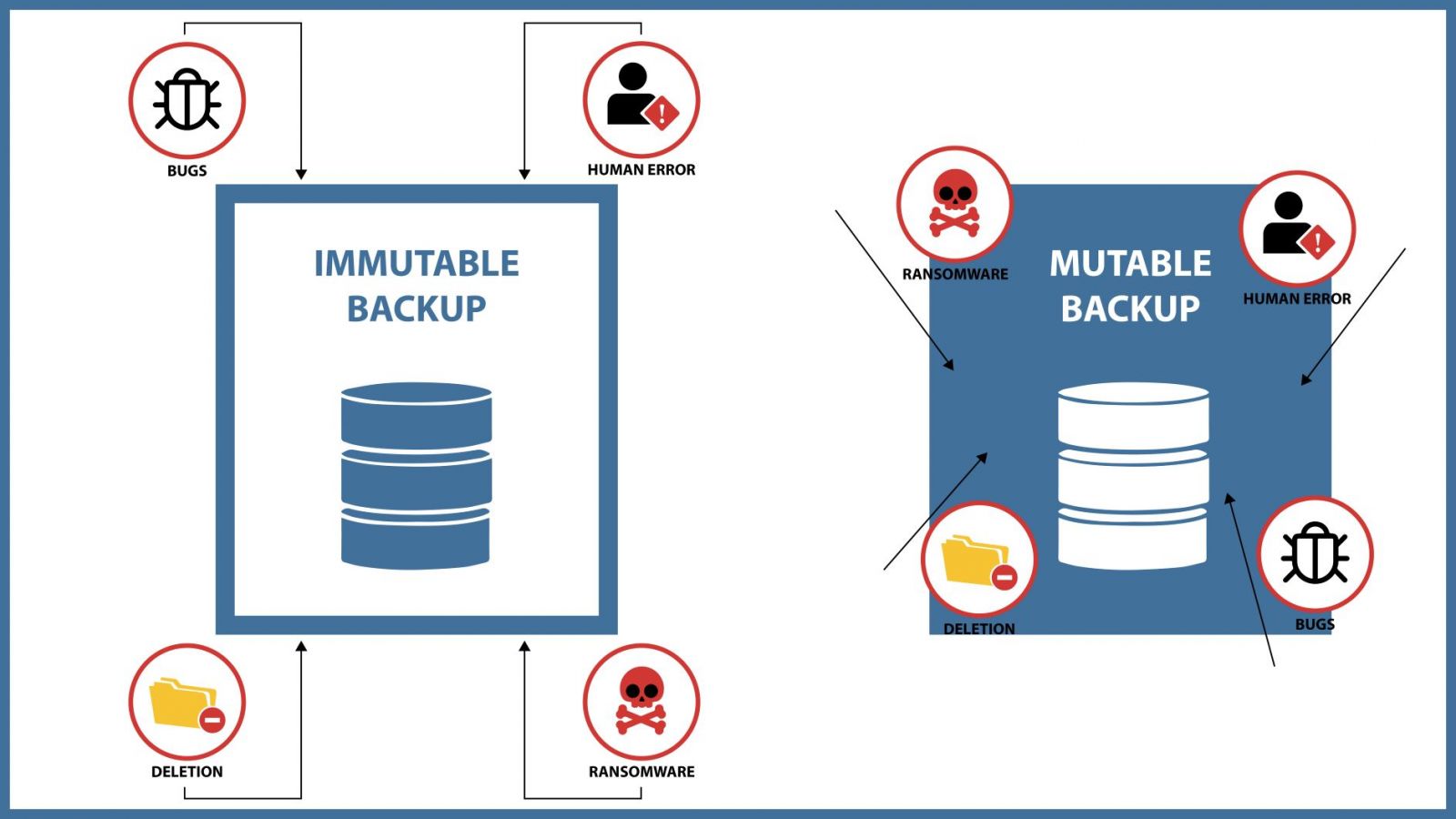An immutable backup or storage means that your data is fixed, unchangeable and can never be deleted.
Having an immutable backup is important to any company that needs to ensure that they have a copy of data that is always recoverable and secure from undesired and unforeseen accidents.
Once you have stored an immutable backup it cannot be altered or changed, this is particularly important when it comes to malware or ransomware. If your backup is immutable then it is impervious to new ransomware infections.
By keeping an archive of immutable backups, you can guarantee recovery from a ransomware attack by finding and recovering the last clean backup you have on record.
Keeping immutable backups effectively means you will never be in a position where the only way you can recover data after a ransomware infection would be to pay the cyber ransom.

In addition to protection from malicious data corruption, immutable backups also enable companies to meet data compliance regulations ensuring provably accurate copies of historical data are retained.
Immutable backups are not new. Even in the days of tape, it was possible to physically set tape media to be written once, read many and therefore be immutable.
It is usually the case that immutability is set on the storage medium that you use to store your backup.
There are numerous options including optical technology, enterprise disk arrays, purpose-built backup appliances and even the cloud.
Unsurprisingly, for modern backup architectures, the cloud is arguably the preferred medium for immutable backup. Usually, the cloud is air-gapped from the primary storage which gives it instant protection from a natural disaster. At the same time, the cloud remains accessible from anywhere meaning recovery of immutable, air-gapped backups can still be immediate, unlike the old days where tapes would need to be retrieved from an off-site location.
The cloud also offers unique features such as placing a time window on immutability. If you need to keep a historic, unchangeable, unalterable and undeletable copy of your data for 2 years, you can set immutability for that period of time.
With immutable backups, you give yourself cast-iron protection against any data corruption, malware, as well as malicious or accidental data deletion. In the event that any of these strike your primary data, you are safe in the knowledge that you are protected.
